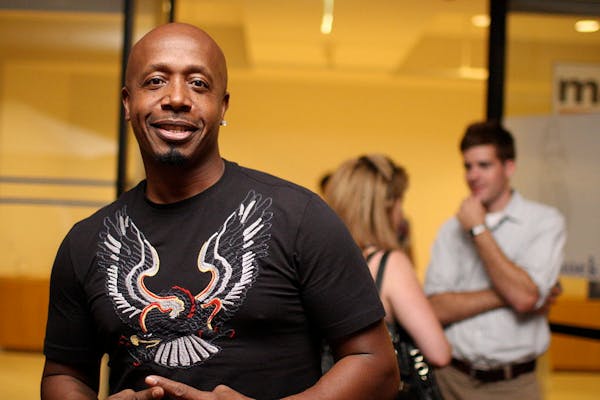In October 2011, Ibrahim Al-Hajiby, a Yemeni student studying at Augsburg College, was far from home as his nation underwent its version of the Arab Spring.
But like many abroad during those heady days, he was still deeply involved.
Al-Hajiby used social media to spur Yemen's social revolution. And when he wasn't in front of a screen, Al-Hajiby was on the street. He took part in a 24-hour "Silence is a War Crime" demonstration. Asleep on the concrete steps of Augsburg's Christensen Center, he was awakened by a friend who informed him his countrywoman, Tawakkol Karman, was one of three women who had just been awarded the Nobel Peace Prize.
"I thought I was dreaming," said Al-Hajiby, who certainly wasn't silent in his celebration.
He also wasn't dreaming. The nightmarish rule of former President Ali Abdullah Saleh would eventually end, in part due to dissidents like Karman, of whom the Norwegian Nobel Committee said, "In the most trying circumstances, both before and during the 'Arab Spring,' Tawakkol Karman has played a leading part in the struggle for women's rights and for democracy and peace in Yemen."
Back at the Christensen Center on Thursday, Al-Hajiby was vocal once again, but this time he was translating for Karman during an interview in advance of her keynote address at Sunday's Nobel Peace Prize Forum at Augsburg.
Being named a Nobel Laureate "brought a lot of meaning not only to Yemen, but to the whole Arab Spring and to all the nations that seek equality and freedom and dignity," said Karman, who added that the prize amplified her advocacy. "The Nobel Peace Prize didn't give me the leadership role in Yemen; it added value to make my voice very strong and to be more effective outside Yemen."
And voices outside Yemen, like Al-Hajiby's, were heard back home, Karman said. "The role of students, youth, outside Yemen — it was important and very strong, because they did great work in convincing the international community in their countries to support the revolution."
They may also have helped convince Yemenis on the need to take to the streets. Some of the swaying was done via social media, a topic of one of the forum's panel discussions, "Phones in the Field: Technology Fosters the Arab Spring." Al-Hajiby, now a forum intern, will co-moderate the panel, which will consider tech's "successes, limitation and future."
"It was amazing that I was thousands of miles away, but at the same time I was able to make a change in my country through social media," Al-Hajiby said.
Karman concurred that social media had advanced the revolution. She said another media revolution, pan-Arabic satellite television channels, also played a key role.
"The role of social media was very important and effective, because it was the voice of the revolution to the world, to the TV, to the people," said Karman, a former journalist. "But it was not just new media, but through channels like Al Jazeera. They did the great work. But even these channels, their sources came from new media."
And just as Al Jazeera took cues from social media, Yemenis watched the process unfold in Tunisia, where the Arab Spring first flowered, and Egypt, where images from Tahrir Square riveted viewers worldwide.
"The Tunisian revolution helped convince us, because we were a small number of people," Karman said. "Tunisia gave us the solution: To get rid of the regime. The second inspiration came from Egypt. We decided we would use another slogan: 'Leave before we make you leave.' "
Saleh eventually left the presidency, but not the political scene. He remains influential and is immune from prosecution. That's just one of many reasons why for many in Yemen, the Arab Spring has become a winter of discontent. The country's new president, Abed Rabbo Mansour Hadi, is widely considered feckless, and he's been unable to quell separatist movements in the south, or end the threat posed by an indigenous Al-Qaida affiliate.
The world is still watching, if not always acting with alacrity. The numerous nations that make up the "Friends of Yemen" began a meeting in London on Thursday. The group includes the United States, which gave Yemen more than $119 million in humanitarian assistance last year.
Back in Yemen, a "National Dialogue" to address vexing political issues begins on March 18, in anticipation of national elections in 2014.
Karman acknowledges the challenges. "The revolution and democracy does not come in the same day. It takes time. We know that there is a lot of tension after the revolution — we call this the postrevolution time. There are mistakes the transitional government does, but we need to understand that this is the second or third year of the revolution."
Then, true to the activism that made her a Nobel laureate, she added that, "We need to feel those obstacles and stand against them. And I'm sure that people are not discouraged, and the proof is those people in the street protesting the government. The street is a trust measure."
----------------------
John Rash is a Star Tribune editorial writer and columnist.

Film festival shows the transformative power of art
NATO's strength in numbers makes U.S. more secure


